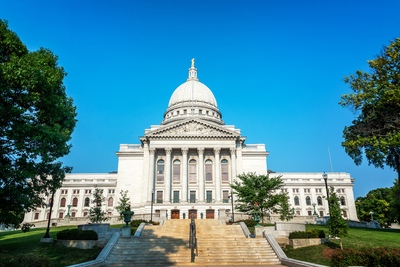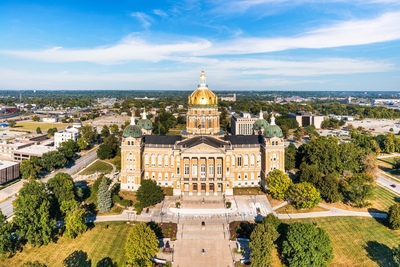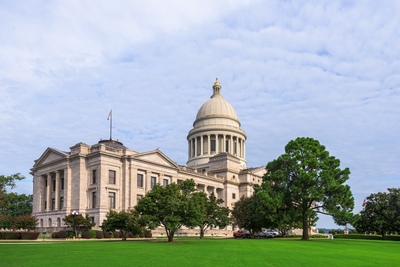
Elections & Campaigns
2026 State Elections Could Reshape Trifecta Control (States to Watch)
February 5, 2026 | Bill Kramer

Key Takeaways:
Last month, voters in Chicago went to the polls to elect a new city government. In both the mayoral race and in fourteen of the city’s fifty council wards, no candidate received more than fifty percent of the vote, meaning that a runoff was held on April 4 between the top two candidates.
In our preview of the February Chicago elections, we projected that two mayoral candidates would advance to a runoff election: Congressman Jesus “Chuy” Garcia and former Chicago Public Schools CEO Paul Vallas. Vallas did take first place in the February election with 34% of the vote, winning predominantly White neighborhoods on the city’s Northwest Side and downtown. His opponent in the runoff, however, was Cook County Commissioner Brandon Johnson, who took second place with 20% of the vote and who did best in gentrifying neighborhoods on the North Side. Incumbent Mayor Lori Lightfoot finished in third place with 17% of the vote, winning predominantly African-American neighborhoods on the South and West Sides, while Garcia finished fourth with 14% of the vote, performing best in Mexican-American neighborhoods on the Southwest Side. Businessman and perennial candidate Willie Wilson came in fifth with 10%, winning a handful of precincts in African-American neighborhoods. The map below visualizes the February mayoral election results (map source).
Although both Vallas and Johnson are Democrats, both represent opposite ends of the center-left ideological spectrum. The more moderate Vallas made addressing increasing crime his top electoral priority, and received endorsements from a plurality of sitting City Council members, as well as from business groups and building trade unions. Johnson was the most progressive candidate in the initial nine-candidate field, and received the support of the Chicago Teachers Union (who he worked for as an organizer prior to his 2018 election to the Cook County Board), along with other public sector employee unions. Additionally, he received endorsements from national and local progressive leaders such as Vermont Senator Bernie Sanders and Reverend Jesse Jackson. He focused his campaign on housing affordability and the state of the city’s public schools.
Although mail-in votes remain to be counted, Johnson secured what is considered to be an upset victory last night, winning the African-American neighborhoods he lost in the first round by a comfortable margin, and also winning Puerto Rican voters on the city’s Northwest side. The map below shows the unofficial mayoral runoff results (map source).
Runoffs were held in 14 of Chicago's 50 council wards. Incumbents mostly fared well in the February elections; only one incumbent lost re-election in February, Anabel Abarca (who was appointed in December to replace outgoing Alderman George Cardenas in the city’s 12th Ward).
Eight of the fourteen runoffs were held in open seat races.
Progressives were the overall winners of the open City Council races. While a conservative candidate won the open 10th Ward (succeeding a retiring progressive incumbent), progressives won the open 46th and 48th Ward races, replacing more moderate members of the Council.
Three incumbents who were appointed to fill vacancies also faced runoffs.All three appear to have won election to a full term.
Three incumbents were forced into runoffs. As of the publication of this post, it appears that all three incumbents prevailed in their runoff elections (although two-term incumbent Chris Taliaferro holds only a 51% lead right now).

February 5, 2026 | Bill Kramer

February 4, 2026 | Maggie Mick

January 23, 2026 | Andrew Jones